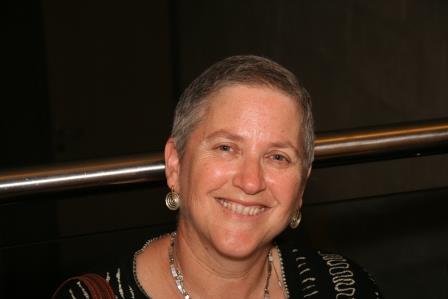Telling Family and Friends That You Have Cancer

One of the issues that anybody with cancer has to confront early in the game is how and with whom to share this news. For me, this was the first big hurdle in navigating the cancer journey. Here are a few things to consider while deciding with whom to share, and when and where this sharing will take place. While there is no one correct response as every person with cancer is unique, several parameters of this decision are worth considering.
Decide with whom to share your news
The first question to think about, is how open or private you wish to be. Do you want to keep the diagnosis a secret? Do you want only family members to know? Do you want to post it on Facebook and start a blog? It is your choice.
I can make a good case that life is much easier if you let go of secrecy, and share the news freely with family and friends, but this may not suit you, your lifestyle, or your work circumstance. For me, sharing the news, and dissolving the secrecy was both liberating, and created around me a tremendous outpouring of support and love. This aided my healing process immeasurably, and when I made the decision to share the news soon after diagnosis with all of my family members from elderly parents to young grandchildren, I felt a burden I did not even know was there, lifting from my shoulders.
I shared the news first with my immediate family, my children, parents, siblings, and then with my closest friends and colleagues. I stressed to all of them that this was not a secret, and I urged my children to talk with each other so that they could be supportive of each other in a way that I, as their sick parent, could not be. I left the work of spreading the news farther, to the natural grapevine. Unless you swear people to secrecy (and even then, there are no guarantees), you can expect your news to travel.
Do it in person
Do not underestimate the importance of sharing your news in person, particularly with people who are closest to you. If there is one mistake I made in this process, it was taking the short cut of telling a family member that I had cancer, over the phone. The reason to tell them in person is that despite all the advances in technology, there is nothing like face-to-face communication. When you talk to someone face to face, they can see that you are still the same person; you can gauge their reactions, and clear up uncertainties. Often, at the time of diagnosis, you will still look like you always have, and that can be reassuring as well, particularly to children.
Prepare a short script
This is not going to be an easy conversation, particularly the first several times you do it. You can be sure that the person you are sharing the news with will be more surprised than you are and will find it difficult as well. Preparing several opening sentences can ease the way for you into this conversation. Often, the direct approach is best. I started with something like this:
“I have some news to share with you that isn’t so good.”
This warning gives your friend or family member a half a second to prepare themselves. I then continued:
“I was diagnosed with……”
Additional parts to the conversation might include what the doctors have told you, your next steps, and the kind of help you may need or expect from them.
Share short and pertinent details
While I am a strong proponent of unlocking the secrecy surrounding cancer, and I shared the headlines freely with family and friends, I found that I did not feel like sharing all of the gory details with everybody. You did not choose to have cancer, but you can choose whom you share your story and how much you tell. If people ask questions that you prefer not to answer, do not feel forced to reveal everything. This is your choice and you are in control of the information.
For many people, short disclosure and a few pertinent details are enough. It is up to you to set the tone as to how much you want to share. Practice saying, “I’d prefer not to discuss that.” The person you are talking to will usually take heed, but if they persist you can explain that while it is important for you to let them know that you have cancer, you prefer to keep the details of the extent of the cancer and the kind of treatment you will be receiving, to yourself. It is certainly your prerogative. This is one small way for you to take back some element of control into your life.
